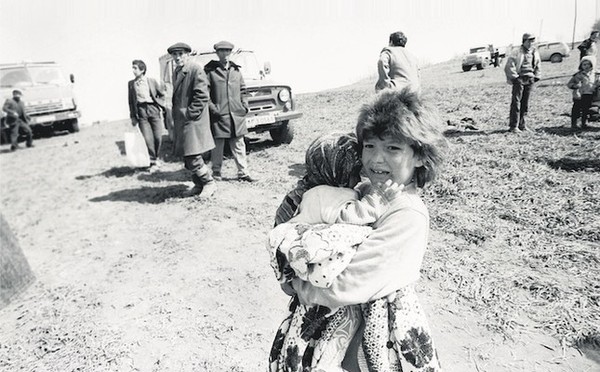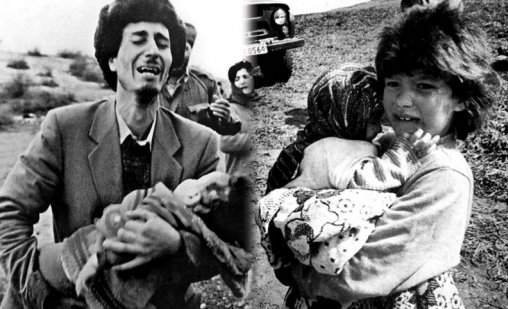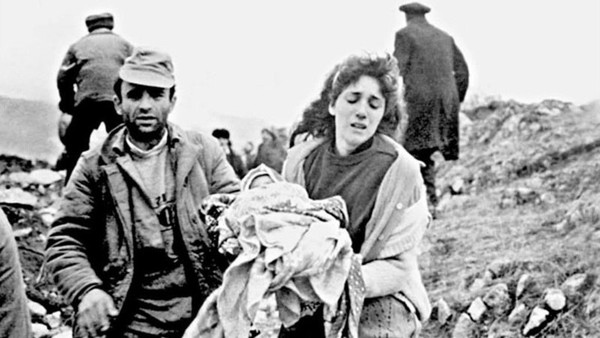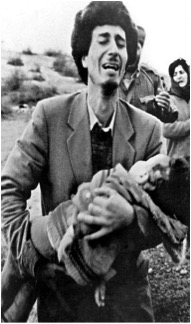Justice prevails in Azerbaijan
The following article was contributed by the Azerbaijan Embassy in Seoul to the Korea Post media for publication.--ED.

February 26, 2021 marks the 29th anniversary of the genocide committed by the Armenian armed forces in Khojaly during Armenia’s aggression against Azerbaijan that had resulted in occupation of one-fifth of the Azerbaijani territories and ethnic cleansing of more than one million Azerbaijanis.
Before the genocide, 7,000 people lived in this town of the Nagorno-Karabakh region of Azerbaijan. From October 1991, the town was entirely surrounded by the armed forces of Armenia. Over the night of the 25 to 26 February 1992, following massive artillery bombardment of Khojaly, the armed forces of Armenia, with the help of the infantry guards regiment No. 366 of the former USSR, implemented the seizure of Khojaly. Invaders destroyed Khojaly and with particular brutality implemented carnage over its peaceful population.

As a result of the Khojaly Genocide, 5379 inhabitants of the city were forcefully expelled, 613 people, including 63 children, 106 women and 70 elderly brutally murdered, 8 families were completely destroyed, 487 were injured, 1275 were captured and taken hostage (the fate of 150 of them, including 68 women and 26 children, remains unknown to date).
Those days, foreign news outlets such as “Sunday Times”, “Financial Times”, “Times”, “Izvestiya”, “Le Monde”, “Crual L'Eveneman” were publishing articles on horrorful scenes witnessed in Khojaly. One of them, “Times” newspaper was writing on March 4, 1992: … “Many people were mutilated, and it was remained only the head of one little girl”.
The Khojaly Genocide committed by Armenia constitutes a serious violation of international humanitarian and human rights law, in particular the 1949 Geneva Conventions, Convention on the Prevention and Punishment of the Crime of Genocide, International Covenant on Civil and Political Rights, International Covenant on Economic, Social and Cultural Rights, Convention against Torture and Other Cruel, Inhuman or Degrading Treatment or Punishment, International Convention on the Elimination of All Forms of Racial Discrimination, Convention on the Rights of the Child and Convention for the Protection of Human Rights and Fundamental Freedoms.

The investigation conducted by the Military Prosecutor’s Office of the Republic of Azerbaijan has fully proved involvement of a number of Armenian military servicemen and other persons in the perpetration of the Khojaly Genocide. The investigation made decisions on their accusation according to the articles of the Criminal Code of Azerbaijan on genocide, torture, deportation of the population, violation of international humanitarian law during the armed conflict and other criminal offenses.
In its judgment of 22 April 2010, the European Court of Human Rights arrived at an important conclusion with respect to the crime committed in Khojaly, qualifying the behavior of those carrying out the incursion as “acts of particular gravity which may amount to war crimes or crimes against humanity”.

The national legislative bodies of 16 States, as well as the Organization of Islamic Cooperation adopted resolutions and declarations on condemning in strongest terms the massacre of civilian population in Khojaly and recognizing the tragedy of Khojaly as an act of genocide and crime against humanity.
It is well known that some representatives of the previous leadership of Armenia together with many other high-ranking political and military officials of that State have personally participated in the Khojaly Genocide.
In his cynical admission of culpability, Armenia’s then-Defense Minister and ex-President, Serzh Sargsyan, was quoted by the British journalist Thomas de Waal, as saying, “before Khojaly, the Azerbaijanis thought that ... the Armenians were people who could not raise their hand against the civilian population. We were able to break that [stereotype]”.
The Republic of Armenia continued its crimes against humanity with the deliberate targeting of Azerbaijani civilians during the Second Karabakh War in 2020. Attacking the civilian population and infrastructures of such populous Azerbaijani cities as Ganja, Barda and Tartar, located far outside the battlefield, Armenia once again resorted to committing the same war crimes in 2020 as it did in 1992 and, in fact, used this time more lethal weaponry, including cluster bombs and rocket systems to cause higher casualties among the civilians.
According to the Prosecutor General’s Office of the Republic of Azerbaijan, as a result of rocket and heavy artillery attacks more than 100 civilians, including 12 children and 27 women were killed, 423 civilians were wounded. More than 5000 residential houses and multi-apartment buildings, 76 social facilities, including schools, hospitals and kindergartens, 24 production facilities, 218 trade facilities, 51 public catering facilities, 41 administrative buildings and 19 religious facilities were destroyed as a result of these attacks. Both the Khojaly genocide of 1992 and the bombing of the peaceful population in 2020 represent clear evidence of the deliberate policy and acts of systematic violence by the authorities of the Republic of Armenia against the Azerbaijani civilians.
It is obvious that impunity still enjoyed by the perpetrators of the crimes continues to impede progress in achieving the durable peace and reconciliation between Armenia and Azerbaijan. Therefore, the establishment of truth in respect to gross violations of international humanitarian and human rights law committed during the conflict, the provision of adequate and effective reparations to victims and the need for institutional actions to prevent the repetition of such violations are all necessary preconditions to true process of rapprochement and peaceful coexistence between the two nations.

